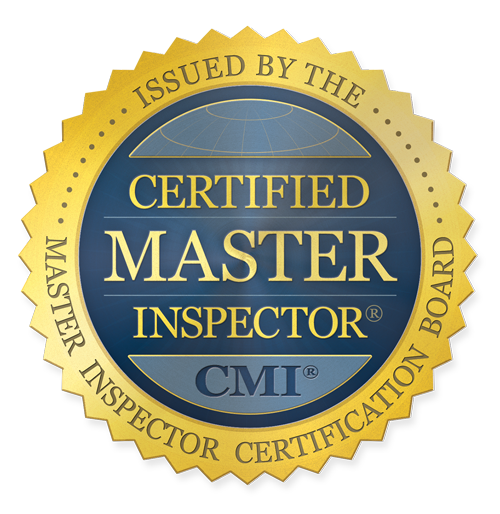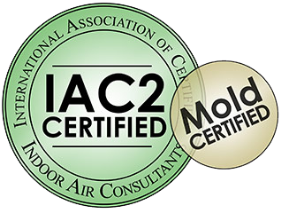Do you need to schedule a home inspection? If so, it’s important to understand which inspections are best suited to the scenario. The most common home inspections are “4-point” and “Whole” or “Full,” and the one you should select depends on the reason for the inspection as well as the ultimate goal of the inspection.
4-Point or Whole-Home? Which is Right for Your Needs?
Here is a general breakdown of the difference between 4-Point and Whole-home inspections.
4-Point Inspections
Four-point inspections identify four key areas or systems that protect the integrity of your home’s structure or that are most likely to cause a problem down the road due to age, changes in building codes, storm damage, fire, or other natural disasters.
When you schedule a 4-point inspection, our inspectors hone in on the status of a home’s:
Roofing system
Anyone living in the DeLand area knows the value of a high-quality roof with plenty of life left. Insurance companies are also fans. Our job is to evaluate every aspect of your roofing system, from the roof foundation, underlayments, and fastener installation to shingle installation and current/potential leak risks.
Now that the Florida state senate passed SB76, it’s more important than ever for Florida homeowners to provide proof of roof soundness to their insurance carriers.
Plumbing and fixtures
Some leaks are obvious, and others are not. For example, plumbing materials installed in interior walls, attics, and soffits can have slow leaks that go for months or years without detection. Similarly, we’ll identify if pipes are outdated or corroding and whether or not your plumbing and home water features are draining properly.
HVAC (heating, ventilation, and cooling) system
Energy efficiency is important, especially in our climate, where residents run their A/C 24/7 during the hot and humid season. We’ll note the age of your HVAC unit, whether or not the unit and related equipment were properly installed, look for refrigerant leaks, and identify sensor malfunctions. Inspectors also note the integrity of the ducts, identifying any breaks, mold, or pest issues.
Electrical system
Finally, we assess the status of the home’s electrical system, including the meter, electrical control panels, and wiring. First and foremost, we look for any signs that your home is at risk for an electrical fire. These are most often caused by outdated systems, electrical components, and wiring that wasn’t installed to code, exposed wires, or overfusing at the breaker panel. You May Need a 4-Point Inspection If…
Four-point inspections are ideal for homeowners who:
- Aren’t sure about the integrity of their roof and basic home systems and want proof to make changes or save money on insurance policies.
- Want to switch insurance carriers and want to provide proof of structural integrity for lower premium prices
- You’re planning to sell an older home or hasn’t been maintained as you’d like. Your 4-point inspection gives you a heads-up into what prospective buyers will eventually learn so you can decide what to update and what to leave alone.
While 4-Point inspections offer a wealth of information about a home, there are times where a whole-home inspection is the better option.
Whole-Home Inspections
Whole-home or full-home inspections cover all of the 4-points listed above, as well as the following “extras.”
Foundation and exterior
Inspectors walk the entire perimeter of your home, paying close attention to any signs that the foundation is cracked or sloped incorrectly and that there’s sufficient clearance between the siding and foundation. In addition, we look for evidence of poor drainage (including signs of water in the basement), as well as damaged or missing siding. Any window frame or window issues, as well as issues around a chimney, stovepipe, and other exterior penetrations, are noted as well.
Evidence of wood-destroying insects
We’ll shine our flashlight in crawl spaces, the attic, and around wood door frames, window frames, and trim pieces looking for evidence of wood-destroying insects.
Room-by-room walk-thrus
Once we’re finished with the exterior inspections, we perform a room-by-room inspection. We peek into every nook and cranny of the structural home (and with great respect for your personal furnishings), including the garage or other attached additions. Our inspectors verify the structural integrity of the rooms, drywall/stucco, and plumbing and electrical features. We also take note of any evidence of water damage, moisture control issues, or leaks.
Safety features
The ultimate goal of any home inspection is to identify any structural or home-related issues that put occupants at risk. We keep an eye out for anything that might become a safety hazard or risk, ensuring the home has updated smoke detectors, CO alarms, fire suppression system, and so on.
Insulation and ventilation
Is the home’s insulation up to code and sufficient for today’s energy efficiency standards (not to mention your whole-home comfort)? Is your home properly ventilated? We’ll let you know so you can make better decisions about whether to purchase a property, ask for repair/replacement credits, or to determine whether upgrading insulation and ventilation is worth it.
Leaks or water damage
We continuously look for any signs of leaks or current/former water damage throughout a whole-home inspection. That includes any evidence of mold or mildew infestations.
Infrared inspections
Home inspections are designed to be as non-invasive as possible, which also means we can’t see inside interior wall spaces with the naked eye. Fortunately, infrared (thermal energy) inspection technology allows us to “see” and identify issues that we wouldn’t have been able to pinpoint otherwise.
Potential issues with lot or property features
Our inspectors also note any lot or property features that could cause a problem down the road. Examples include overgrown trees or branches that could compromise the home’s structure in a storm.
You Probably Need a Whole-Home Inspection When…
Homeowners and investors are better off using full home inspections:
- Before purchasing a home
- When inheriting an older home (20 years or more)
- If you waived a home inspection to have a better chance of purchasing your home
We can’t emphasize that last bullet point enough. If you waived a home inspection to purchase a hot home in this current seller’s market, you need to schedule an inspection ASAP. You have no idea what may or may not be lurking in unseen spaces, and the last thing you want is for storm season to demolish your roof or for outdated electrical elements to spark a fire.
The trustworthy, licensed home inspectors at Super Inspection Pros (SIP) are here to answer any questions you have about the difference between 4-point and whole-home inspections or to help you (or your client) determine which inspection makes sense for your needs, goals, and the age/condition of the home.
Contact SIP to speak to the experts or to schedule an inspection. We promise to provide fast and reliable inspection reports in 24 hours or less.

